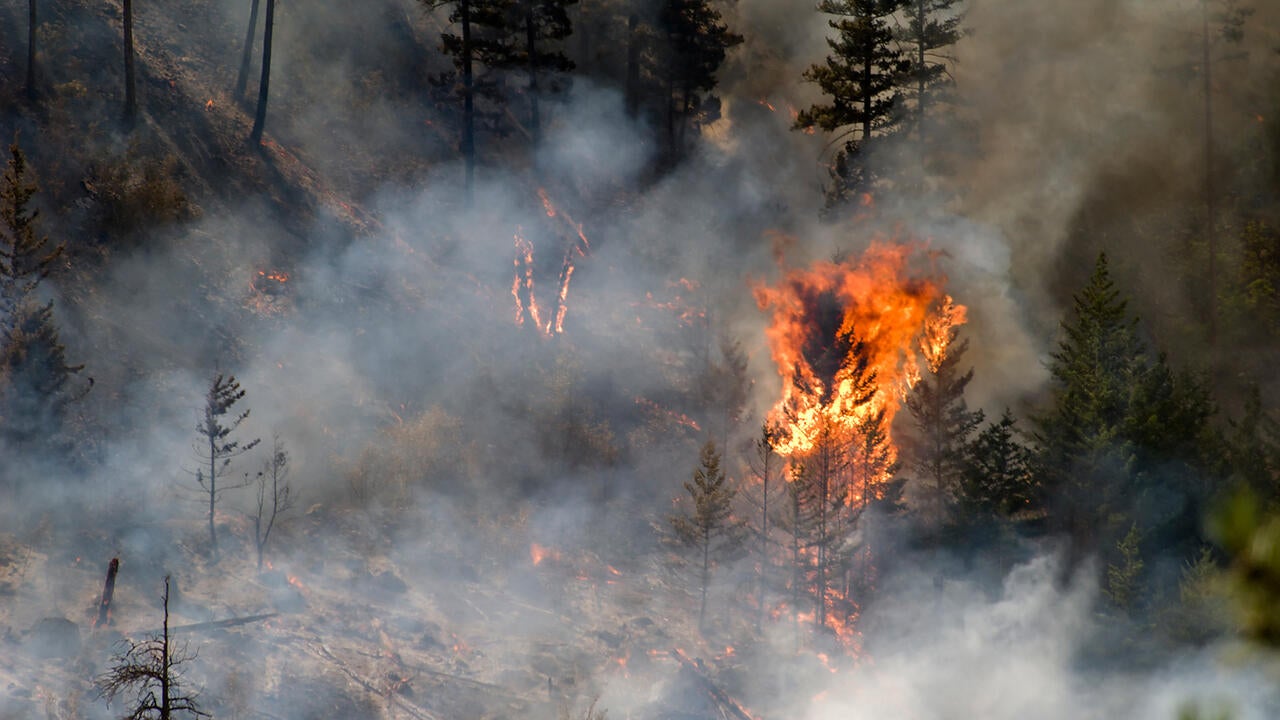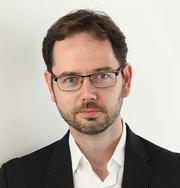
Fighting wildfires with artificial intelligence
Combining machine learning techniques with real-world scenarios to combat forest fires

Combining machine learning techniques with real-world scenarios to combat forest fires
By University RelationsBritish Columbia experienced a state of emergency this summer when wildfires burned across the province, destroying more area than in any other season on record. The fire currently raging in California has become the deadliest wildfire in the state's modern history.
With climate scientists predicting warmer, drier weather in many regions across Canada, finding solutions to combat the devastation of forest fires has never been more pressing.
For Mark Crowley, the answer lies in the potential of artificial intelligence (AI) and machine learning for prediction, modelling and decision making in tackling the challenging problems created by wildfires.
 Crowley is an electrical and computer engineering professor at the University of Waterloo. He is also a member of the Waterloo Artificial Intelligence Institute and the Waterloo Institute for Complexity and Innovation, and a research fellow at Element AI.
Crowley is an electrical and computer engineering professor at the University of Waterloo. He is also a member of the Waterloo Artificial Intelligence Institute and the Waterloo Institute for Complexity and Innovation, and a research fellow at Element AI.
Before coming to Waterloo, Crowley did post-doctorate work at Oregon State University on robust decision-making under uncertainty in simulated forest fire scenarios.
During a forest fire, important decisions must be made with a high level of accuracy, including how the fire may spread, issues regarding suppression and treatment, and the logistics of moving people and machinery. These decisions are complicated by the complex dynamics of wildfires and challenging value trade-offs involved — such as determining the immediate and long-term costs and benefits of particular actions.
Crowley’s research explores how improved data and modelling can help manage this complexity. AI and machine learning can be used to gain a deeper understanding of the costs and rewards of actions, maximize decisions to result in preferred outcomes and identify patterns to allow better decisions.
One of Crowley’s guiding inspirations is in the field of computational sustainability — combining machine learning techniques with real-world scenarios to help solve some of the most challenging problems related to sustainability.
His research goes beyond forest fire management to multiple areas of artificial intelligence and machine learning to seek dependable and transparent ways to augment human decision-making.
Watch Crowley explain how AI can be used to enhance human decision making at the AI for Good summit.
Crowley was recently invited to present his research at the British Columbia AI Wildfire Symposium. He is scheduled to return to Vancouver on November 13 to provide his insights as a panelist at the Waterloo Innovation Summit.
The Waterloo Innovation Summit will explore innovations in technology with big potential to help address global environmental challenges. Crowley will be joined by Harold Javid from Microsoft, Kirsten Sutton from SAP Labs Canada and Jean Andrey, dean of the Faculty of Environment at the University of Waterloo, to discuss new approaches to achieving environmental sustainability through technology.
To learn more about the event, please visit the Waterloo Innovation Summit website.

Read more
Dean Andrey ‘s research has made roads safer for millions of drivers with the winter severity index

Read more
Professor Blair Feltmate says simple changes like adding curbs and water sensors can potentially save lives

Read more
3D printing technology is perfect fit with new Waterloo Institute for Sustainable Aeronautics
The University of Waterloo acknowledges that much of our work takes place on the traditional territory of the Neutral, Anishinaabeg, and Haudenosaunee peoples. Our main campus is situated on the Haldimand Tract, the land granted to the Six Nations that includes six miles on each side of the Grand River. Our active work toward reconciliation takes place across our campuses through research, learning, teaching, and community building, and is co-ordinated within the Office of Indigenous Relations.